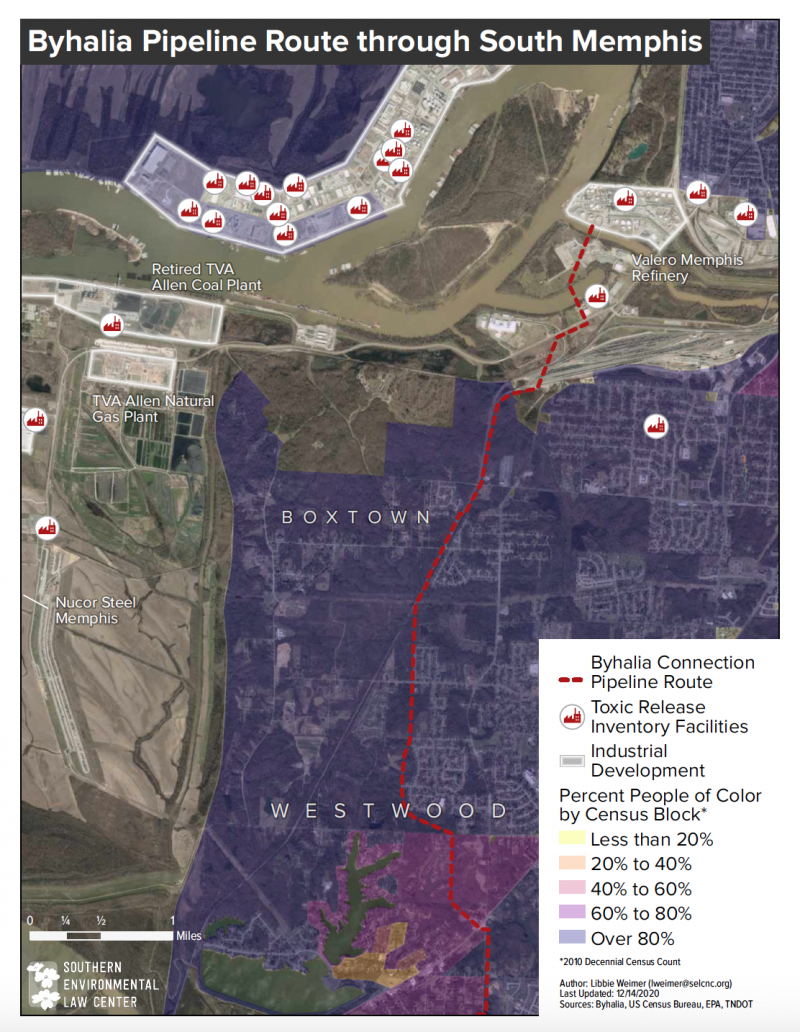Memphis City Council must pass commonsense protections for the city’s drinking water source
Southwest Memphis recently celebrated a major victory when oil pipeline companies cancelled the Byhalia Pipeline. The reckless project would have plowed through Black communities and threatened the Memphis Sand Aquifer, which provides drinking water to hundreds of thousands of Memphians. Even though the crude oil pipeline was scrapped, the Memphis Sand Aquifer remains under-protected from dangerous industrial projects that can pollute it with hazardous chemicals.
The Memphis City Council must take action and pass Ordinance 5794 to ensure the safety of the city’s water today and for generations to come.
Click here to tell Memphis City Council members
to pass these commonsense protections
- Ordinance 5794 creates an Underground Infrastructure Review Board that has the power to stop dangerous projects that could lead to contamination of the Memphis Sand Aquifer.
- These safeguards are long overdue and close a regulatory gap that leaves Memphians’ sole source of drinking water under-protected.
- No federal or state agency has been willing to step up and take responsibility for investigating the potential damage reckless industrial projects could have on the aquifer.
- Creating a local government body dedicated to regulating development that could pollute the Memphis Sand Aquifer is the best way to ensure the safety of Memphians’ water.
- Ordinance 5794 also ensures that our local leaders take environmental justice concerns into account when reviewing these projects.
Ordinance 5794 is a critical next step in making sure future pipeline projects cannot threaten Memphians’ health and contaminate their drinking water. While other proposed zoning measures add some safeguards against dangerous pipeline projects, Ordinance 5794 provides the most comprehensive protection for the Memphis Sand Aquifer, Memphis communities overburdened by pollution, and the city’s drinking water. The Memphis City Council must pass this crucial ordinance.
Byhalia Pipeline Background

The need for these protections was highlighted by the now-cancelled Byhalia Pipeline, which would have moved crude oil from Memphis to northern Mississippi and would have been installed above the Memphis Sand Aquifer. Memphians proudly call the thousands-year-old underground aquifer water the “sweetest water in the world,” but even a small amount of crude oil leaked from the pipeline could have put millions of gallons of aquifer water – and the Memphians who rely on it – at risk.
The pipeline route also targeted southwest Memphis communities, which are predominantly Black and have a long history of being overburdened with industrial pollution. A representative from the project called the route the “point of least resistance.”
SELC and our partner organizations, Memphis Community Against Pollution, Protect Our Aquifer, and the Sierra Club, challenged the pipeline’s permits, fought the project in court, and forced the pipeline companies to pull the plug on the high-risk project.
